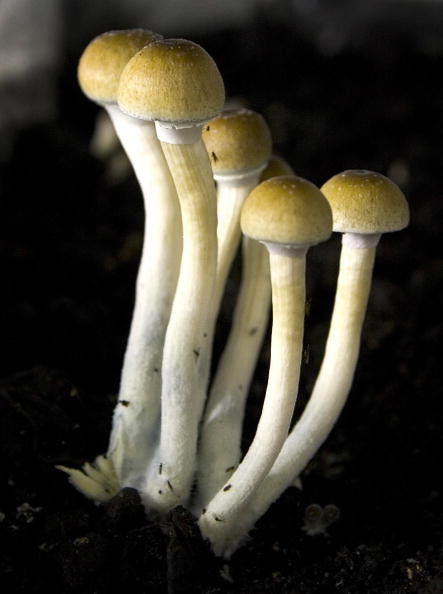Magic Mushrooms and LSD Help Cancer Patients Overcome Fear of Death, Say Scientists

Drugs including magic mushrooms and MDMA are being used to treat cancer patients and people suffering from social anxiety by scientists in the US, in a series of groundbreaking studies.
In a recent study, cancer patient in New York were given magic mushrooms, which contain psilocybin, a powerful psychoactive drug with effects similar to LSD.
Psychologists monitoring the experiment wanted to find out if the drug could help patients overcome their pain and fear, and the results were positive.
"The worst pain and the worst fear and the worst anxiety turned into … the most precious thing I have ever known," said Estalyn Walcoff, a psychotherapist diagnosed with an untreatable form of lymphoma who took part in the study.
"I wish I could put it into words, but it was a sense of connectedness that runs through all of us," she told the Times.
New York University clinical psychologist Anthony Boss, who led the study, confirmed that participants had reported a lasting improvement in their psychological wellbeing.
"People talk about achieving a transcendence that serves as a buffer against the angst," he said.
The study follows similar tests by scientists at Johns Hopkins University, and a pilot study using LSD by Charles Grob at Harbor UCLA Medical Center in LA, in which a dozen terminally ill cancer patients took part.
It was the first study to involve LSD approved by the US Food and Drug Administration in 40 years.
Psychologist Timothy Leary famously conducted experiments with LSD and psilocybin at Harvard University in the 1960s, and claimed the drugs could be used to treat alcoholics and reform criminals.
Novelist Aldous Huxley was part of Leary's Harvard psilocybin project, and took LSD on his deathbed in 1963.
Leary went on to be closely associated with the counter-culture of the 1960s, and was called "The most dangerous man in America" by president Richard Nixon. Both psilocybin and LSD were banned by the US federal government in 1966.
There is a tremendous research record, but it came to a grinding halt in the late 1960s. Leary didn't help, he was a born provocateur.
Grob said: "There is a tremendous research record, but it came to a grinding halt in the late 1960s. Leary didn't help, he was a born provocateur. It became associated with a perceived mental health crisis, with a counter-culture. Things got too hot to handle. It took another 30 years for us to be able to come back to it."
The team is currently interviewing subjects for a study on the effects of MDMA on autistic people who suffer from social anxiety.
Harvard scientists are also studying the effects of the drug on the terminally ill.
Some people with the disorder the scientists had spoken to said the drug had improved their ability to relate to friends and loved ones.
Alicia Danforth, said the girlfriend of one man interviewed told her: "He used to say things like, 'Well. You are not ugly but you are not very pretty either.' He had an MDMA experience, in which he was operating from a primarily emotional stance. Afterwards, he had more compassion for her."
Rick Doblin, founder of the Multidisciplinary Association for Psychedelic Studies, which helped fund the UCLA trial study, told the Huffington Post that a new era in the exploration of the use of psychedelics for clinical use has begun.
"The political suppression of this research is over. I don't think the genie is going to be put back in the bottle."
In 1955, British MP Christopher Mayhew (1915-1997) was filmed taking a hallucinogenic drug by the BBC. The footage was deemed too shocking to broadcast at the time, but has since surfaced on YouTube. Watch it below.
© Copyright IBTimes 2025. All rights reserved.






















